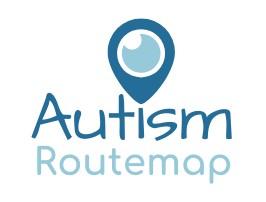What do chatting and gymnastics have in common?

It’s summertime here in the UK – though you won’t get any clues from the weather! Despite our gloomy skies, it’s the season for outdoor theatre. Across the UK, audiences swap their opulent theatre seats for picnics and deck chairs. And as they say … the show goes on … come rain or shine.
A few years back, I took my children to see a play in a walled garden near our home. When the performance ended, I was surprised to see only a handful of actors on stage. As it turns out, the rest of the cast hadn’t done a runner … there weren’t any others. Each person had cleverly played multiple roles.
I remember thinking how incredibly skilled they were to keep changing characters without lapsing into the wrong role. It seemed like a big ask … even if they were trained to act. And yet, what they were doing, is similar to the mental gymnastics we perform when we catch-up with friends or colleagues around the barbecue or water cooler.
There's a huge amount of flexible thinking involved in the humble chit-chat. In the space of a few minutes, we’ll flip between being a speaker and a listener. From giving information to receiving it or asking for it.
What we discuss, is also shifting … and at speed. In small-talk, topics change fast and furiously. They may be serious or frivolous. We go from the weather to the football and back to Grandmas’ health in a heartbeat.
And, if that’s not enough of a juggling act, we are also constantly adapting to the people around us. We respond to their mood – perhaps trying to be interesting if they are bored, or funny if they need cheering.
Status is another reason for changing the way we talk. A natter with a friend is not the same as shooting the breeze with your boss … or talking to a child. Goodness … we even adjust when talking to a male or a female.
By now, you may be thinking you’re a miracle worker … but, there’s more! We change our communication to cater to the other person’s ability level. The topic, the words, our speed all differ depending on whether we’re talking to a child or an adult, a university professor or someone with a learning disability. It’s not the same.
And then, there’s the environment. We adjust how we speak and what we talk about based on whether we are inside or outside, in a quiet library, a noisy restaurant or at a sports match.
For the neurotypical person, this is largely an intuitive process that happens effortlessly. But for autistic people who have less access to intuitive social understanding, it is more mentally demanding.
It’s why autistic people often favour topic-based discussion over small-talk. This type of conversation is usually more factual and typically involves fewer topic shifts.
It’s also why autistic people often prefer written over spoken communication. There is more thinking time and less need to adapt to your conversation partner and surroundings.
I’ve known autistic people who do public speaking as a career - from delivering lectures to being stand-up comics. These seem like counter-intuitive choices for people with communication challenges. But this style of communication typically involves a script of some sort which reduces the need for constant adaptation.
So knowing what’s involved in a little chat about nothing in particular explains why autistic people often want to avoid social situations where this style of interaction will be required. It is in fact, very taxing if you are using intellect rather than intuition.
All of this begs the question … how do we respond?
For the neurotypical partners and employees, a little can go a long way …
- Recognise what is involved and ACCOMMODATE. If it’s easy for me, then it must be easy for you is not logical.
- If it’s unavoidable, help out the autistic partner by carrying the lion’s share of the conversation, switch to more “meaty” topics and don’t leave your autistic partner to fend for themselves if they are uncomfortable.
- Remove the requirements and expectations at work to join social networking events from those who find them difficult.
- Respect the need for down time.
And for the autistic people …
- Manage how often and how long you spend in social situations.
- Prepare some topics before you attend events. Taking the time to bullet point a few ideas will mean you don’t have to think about what to say when you are already carrying a heavy mental load. You can select one or two current news items or things you’ve been doing that might be interesting.
Accepting people for who they are is not that difficult. Little children seem to do it easily. It’s us adults who struggle when people are different from ourselves. Our inner judge is quick to slam the gavel. I like the way Nelson Mandela said it:
“No-one is born hating another person because of the colour of his skin, or his background, or his religion. People must learn to hate, and if they can learn to hate, they can be taught to love, for love comes more naturally to the human heart than its opposite”.
To being you!
Linda
Linda empowers and equips people to communicate effectively, find freedom in their relationships and experience greater emotional well-being.
If you want to take action and get unstuck, click here to book your free no obligation call.
Disclaimer
This blog post is for educational purposes and should not be taken as medical or therapeutic advice. If you need medical or therapeutic support, please consult your medical practitioner or therapist.

